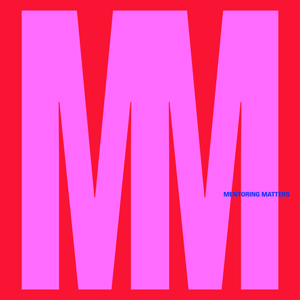- ARTiculate
- Posts
- Your Art is Your Work
Your Art is Your Work
Treat It Like It Is

This newsletter is independently-led. If you are ever moved to support this work, you can make a one-time or monthly donation through Ko-fi or PayPal for the price of a coffee. Every bit of support goes directly toward the time, energy, and resources it takes to keep this newsletter going. It helps me show up more fully for you. Thanks to all who have and continue to support.
What You’ll Find in This Issue
Your Art is Work: So Treat It Like it Is

Still from a film of artist Kim Thompson working in her studio, for a project I commissioned. Credit: ForFourth/NAE (2024)
1st May — officially International Workers’ Day (commemorated in the UK on the first Monday of May) — is an annual opportunity to reflect on the long history of labour struggle. Across generations and continents, workers and political movements have fought for shorter hours, safer conditions and fairer wages. From the campaign for the eight-hour working day in the 1800s to today’s calls for stronger protections in the gig economy, the message has remained clear: everyone deserves dignity, clarity, and security in their work.
But where do artists fit into this?
Too often, we’re told we’re “lucky to do what we love.” That exposure is an acceptable form of payment. But let’s be honest: art is work. It takes time, training, materials, and emotional labour. And it deserves the same protections, standards, and pay as any other profession.
Sadly, from my own early experiences — and from countless conversations with other artists — I know that’s far from the reality. The stories I could tell from the start of my career: being paid next to nothing, being taken advantage of, and worst of all, not even having a contract in place or knowing my rights. I’ve learned since then — the hard way.
According to a recent report Framing the Future: The Political Case for Strengthening the Visual Arts Ecosystem by CVAN, the visual arts sector alone contributes £4.1 billion to the UK economy. And the government’s own figures in Creative Industries: Growth, Jobs and Productivity show the wider creative industries contributed £124 billion in gross value added (GVA) in 2023 — that’s 5.2% of the entire UK economy. And yet, so many people working in this sector still do so without contracts, without insurance, without the legal knowledge to protect their work — and for far less money than they should be earning (if they are paid at all). Sometimes it feels like the systems around us weren’t built to support artists — but that doesn’t mean we have to stay unsupported.
Whether you're a visual artist, performer, designer, writer or creative freelancer, who’s art forms part of your living (not just a hobby, but not also excluding side hustles because they contribute to your living) knowing your rights isn’t a luxury — it’s one of the foundations required for a healthy work life.
I also understand that some of you may still be in situations where you're accepting unfair treatment — not because you want to, but out of fear that speaking up might cost you the opportunity altogether.
That’s real. And that’s why this newsletter exists.
There are ways to protect yourself — with the right tools, information, and support networks. In this issue, I’ve pulled together some essential resources to help you move towards a more protected and sustainable practice.
1. Contracts: Safeguard Your Work from the Start
Having a clear, written agreement is essential for setting expectations and protecting everyone involved. I always stress that agreements aren’t just about covering yourself; they help ensure that all parties understand what’s expected from the start. If something goes wrong or terms are breached, a written agreement provides a clear record. In more serious cases, it can also serve as evidence in a legal dispute.
Early in my career, I found myself in more than a few tricky situations. Sometimes it was because I hadn’t issued a written agreement; other times, because I never received one. Honestly, this is not a step worth skipping.
Agreements can take the form of a signed document, or even an email that outlines the terms with written confirmation from both parties. A signed contract is generally the safest and most professional option.
A good commissioner or organisation should provide an agreement. If they don’t, you’re well within your rights to draft one yourself. Below are a few templates you can adapt to suit your own projects.
2. Access Riders: Communicate Your Needs Clearly
An access rider is a document that outlines your access requirements, ensuring that collaborators and venues can accommodate your needs.
3. Insurance: Protect Yourself and Your Practice
Public Liability Insurance (or PLI) is vital for covering potential liabilities and ensuring peace of mind. If you are working in a freelance capacity, which is the case for most artists, then some places taking you on for work will require proof of certification of insurance and have a minimum value. Sometimes an organisation’s insurance may cover you, which is also good to check, however, if you are doing a lot of independent work, especially in the public, then I cannot stress how important it is. You can get artists insurance for very good rates, and now, a lot o artist memberships will come with insurance cover, as well as other support. I have gotten mine through membership with a-n The Artists Information Company since 2017.
4. Unions & Legal Support: Know Your Allies
Joining a union or accessing legal support can provide crucial assistance in navigating the complexities of the creative industry.
5. Licensing & Copyright: Understand and Manage Your Rights
Properly managing your intellectual property ensures you receive fair compensation for your work. It’s more important than you probably thin and like contracting, a step that I would not avoid, especially if you create reproductions of your work.
6. Day Rates: Value Your Time and Skills
Talking about day rates can feel awkward, and understandably so. Sometimes we want the opportunity just as much as the person offering it wants to work with us. But setting and communicating appropriate day rates is a key part of being fairly paid for your labour.
Below are two helpful links that provide rate guidance based on your experience level. Remember to factor in the cost of materials and any additional expenses on top of your base rate. When quoting your fee, it can be helpful to explain how you arrived at that figure, especially if you think a bit of context will support mutual understanding.If the commissioner comes back with a lower offer that doesn’t match your usual rate, the decision is yours. Sometimes there’s room for compromise if the opportunity feels like a good fit. But it should be your choice, not something you’re pushed into.
When I commission artists myself, I refer to the Artist Union England guidelines, and often offer above their suggested day rates to cover things like travel time, overnight stays or additional prep. If an artist tells me that the rate isn’t workable for them and I can’t go higher, I respect that and thank them for being upfront. I would never expect an artist to compromise if it doesn’t feel right to them.
One last point. If you're still charging the same rates you were before 2020, particularly anything under £200 per day, it's time to reassess. Prices have gone up, and so has the value of your time, experience and skill. Yesterday’s price is not today’s price.
Opportunity listings
A list of open call, residency, fellowship and funding opportunities for artists.
A mix of UK-based and international.
Some opportunity deadlines are in a few days, some next week, some next month — so do not delay in clicking on the ones that catch your eye to get full details.
I try and refrain from sharing opportunities that require an application fee.
This newsletter has existed for just over 5 months now and I’d really love to hear what you think so far. Your feedback, and me getting to know a little bit about the demographics of who is reading this newsletter will help me figure out what’s working, what could do with a tweak, and what you’d like to see more of.
Please take a few minutes to complete the feedback survey here. You would be answering anonymously.
Closing remarks
Remember: Knowing your rights isn’t a bonus. It’s the groundwork for a sustainable practice. Knowledge is power, so remember to to stay educated and exercise the rights you have that were fought for by others.
If you have made it this far, thank you for reading. If you know anyone who you think would benefit form these newsletters, forward this to them, and encourage them to subscribe.




















Reply